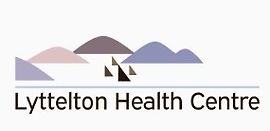Canterbury > GPs / Accident & Urgent Medical Care > Pegasus Health >
Lyttelton Health Centre
General Practice (GP) Service
Today
8:00 AM to 5:00 PM.
Description
Lyttelton Health Centre is a friendly and professional General Practice team providing primary health care to residents, families, businesses, seafarers and visitors in the Lyttelton Harbour and Port Hills area.
We are open for new enrolments for patients living in Lyttelton, surrounding bays and Heathcote.
If you felt like you needed an appointment today and there is nothing available on the portal, please don’t hesitate to call us as we hold spaces for urgent appointments each day.
If you are feeling unwell, especially if you have symptoms of fever, cough and or shortness of breath, do not book an online appointment, but phone us on 03 328 7309 and we will arrange an appointment, or call Healthline 0800 358 5453
Doctors
-

Dr Rosemary Chambers
General Practitioner - Vocationally Registered
-

Dr Alison Curran
General Practitioner
-

Dr Kim Glass
General Practitioner - Vocationally Registered
-

Dr Ben Hudson
General Practitioner - Vocationally Registered
-

Dr Isabelle Lewis
General Practitioner
-

Dr Anna Maze
General Practitioner - Vocationally Registered
-

Dr Ellie McDougall
Locum General Practitioner - Vocationally Registered
-

Dr Katie Smith
General Practitioner - Vocationally Registered
Ages
Older adult / Kaumātua, Youth / Rangatahi, Adult / Pakeke, Child / Tamariki
How do I access this service?
Enrolled patients
Casual (not enrolled) patients
We don't generally see casual patients but if there is a spare appointment on the day of the casual patient presenting, we may be able to accommodate them.
Make an appointment
Contact us
Walk in
Home visit provider
Website / App
Enrolling new patients
Restricted enrolment
This practice is accepting some new patients to enrol, but with restrictions.
We are open for new enrolments for patients living in Lyttelton, the surrounding bays and Heathcote
Fees
Enrolled Patient Fees
| Age Range | Without CSC | With CSC |
|---|---|---|
| Under 6 years | Free | Free |
| 6 to 13 years | Free | Free |
| 14 to 17 years | $42.00 | $13.00 |
| 18 to 24 years | $58.00 | $19.50 |
| 25 to 44 years | $58.00 | $19.50 |
| 45 to 64 years | $58.00 | $19.50 |
| 65+ years | $58.00 | $19.50 |
Hours
8:00 AM to 5:00 PM.
| Mon – Fri | 8:00 AM – 5:00 PM |
|---|
After Hours: We partner with Practice Plus to provide same day virtual GP appointments for enrolled patients, as an extension of our regular medical centre team.
Practice Plus is available weekdays until 10pm and weekends/public holidays 8am-8pm.
Click here to find out more and to register/book an appointment.
Public Holidays: Closed Good Friday (18 Apr), Easter Sunday (20 Apr), Easter Monday (21 Apr), ANZAC Day (25 Apr), King's Birthday (2 Jun), Matariki (20 Jun), Labour Day (27 Oct), Canterbury Anniversary (14 Nov), Waitangi Day (6 Feb).
Preferred urgent care clinic out of hours: 24 Hour Surgery Pegasus Health.
Services Provided
All women and people with a cervix aged 25 – 69 who have ever had intimate skin-to-skin contact or been sexually active should have regular cervical screening. This includes women who have been immunised against HPV. Together, regular screening and HPV immunisation provide the best protection against cervical cancer. There are now more options for how you have cervical screening done: a simple vaginal swab test for HPV, either done yourself or with help from a healthcare professional a cervical sample taken by a healthcare professional (used to be known as a smear test). Talk with your healthcare provider to decide which option is best for you. If HPV is found, you may need to have a follow-up test or be referred directly for colposcopy. If you’ve not yet had HPV testing, you should be screened 3 years after your last test (or 1 year if immune deficient). Once you have had an HPV test, and providing HPV is not found, your next screening will be in 5 years (or 3 years if immune deficient). For more information: Cervical screening | Time to Screen - National Screening Unit
All women and people with a cervix aged 25 – 69 who have ever had intimate skin-to-skin contact or been sexually active should have regular cervical screening. This includes women who have been immunised against HPV. Together, regular screening and HPV immunisation provide the best protection against cervical cancer. There are now more options for how you have cervical screening done: a simple vaginal swab test for HPV, either done yourself or with help from a healthcare professional a cervical sample taken by a healthcare professional (used to be known as a smear test). Talk with your healthcare provider to decide which option is best for you. If HPV is found, you may need to have a follow-up test or be referred directly for colposcopy. If you’ve not yet had HPV testing, you should be screened 3 years after your last test (or 1 year if immune deficient). Once you have had an HPV test, and providing HPV is not found, your next screening will be in 5 years (or 3 years if immune deficient). For more information: Cervical screening | Time to Screen - National Screening Unit
All women and people with a cervix aged 25 – 69 who have ever had intimate skin-to-skin contact or been sexually active should have regular cervical screening. This includes women who have been immunised against HPV. Together, regular screening and HPV immunisation provide the best protection against cervical cancer.
There are now more options for how you have cervical screening done:
- a simple vaginal swab test for HPV, either done yourself or with help from a healthcare professional
- a cervical sample taken by a healthcare professional (used to be known as a smear test).
Talk with your healthcare provider to decide which option is best for you.
If HPV is found, you may need to have a follow-up test or be referred directly for colposcopy.
If you’ve not yet had HPV testing, you should be screened 3 years after your last test (or 1 year if immune deficient). Once you have had an HPV test, and providing HPV is not found, your next screening will be in 5 years (or 3 years if immune deficient).
For more information: Cervical screening | Time to Screen - National Screening Unit
Immunisation is the safest and most effective way to provide protection for you and your tamariki’s health. For more information view the NZ immunisation schedule.
Immunisation is the safest and most effective way to provide protection for you and your tamariki’s health. For more information view the NZ immunisation schedule.
- Pregnancy vaccinations
- Childhood immunisation programme
- 45 year old vaccinations
- Adult flu vaccine
- Child flu vaccine
- Diphtheria / Tetanus / Pertussis (whooping cough) vaccine
- Measles / Mumps / Rubella (MMR) vaccine
- Meningococcal vaccine
Immunisation is the safest and most effective way to provide protection for you and your tamariki’s health. For more information view the NZ immunisation schedule.
LARC methods are very effective at preventing unplanned pregnancy and are “fit and forget” forms of contraception – you don’t need to remember them every day or every month. LARC methods: Intrauterine Contraceptive Devices (IUCD or IUD) are inserted through the cervix into a woman’s uterus. IUCDs may be either hormonal (Mirena® or Jaydess® ) or non-hormonal (copper IUCD). Jadelle® is a hormone-releasing implant that is inserted just under the skin of the upper arm. Depending on the type of device, it will need to be changed after between three and ten years. Read more about LARC methods here
LARC methods are very effective at preventing unplanned pregnancy and are “fit and forget” forms of contraception – you don’t need to remember them every day or every month. LARC methods: Intrauterine Contraceptive Devices (IUCD or IUD) are inserted through the cervix into a woman’s uterus. IUCDs may be either hormonal (Mirena® or Jaydess® ) or non-hormonal (copper IUCD). Jadelle® is a hormone-releasing implant that is inserted just under the skin of the upper arm. Depending on the type of device, it will need to be changed after between three and ten years. Read more about LARC methods here
- Implant (Jadelle) inserts
- Implant (Jadelle) removal
- Free or subsidised contraception services (enquire for eligibility and details)
LARC methods are very effective at preventing unplanned pregnancy and are “fit and forget” forms of contraception – you don’t need to remember them every day or every month. LARC methods:
- Intrauterine Contraceptive Devices (IUCD or IUD) are inserted through the cervix into a woman’s uterus. IUCDs may be either hormonal (Mirena® or Jaydess® ) or non-hormonal (copper IUCD).
- Jadelle® is a hormone-releasing implant that is inserted just under the skin of the upper arm.
Depending on the type of device, it will need to be changed after between three and ten years.
Read more about LARC methods here
Online Booking URL
Website
Contact Details
18 Oxford Street, Lyttelton
Canterbury
8:00 AM to 5:00 PM.
-
Phone
(03) 328 7309
-
Fax
(03) 328 7430
Healthlink EDI
lyttelhc
Website
18 Oxford Street
Lyttelton
Canterbury 8082
Street Address
18 Oxford Street
Lyttelton
Canterbury 8082
Postal Address
PO Box 32
Lyttelton 8841
Was this page helpful?
This page was last updated at 10:32AM on February 24, 2025. This information is reviewed and edited by Lyttelton Health Centre.

